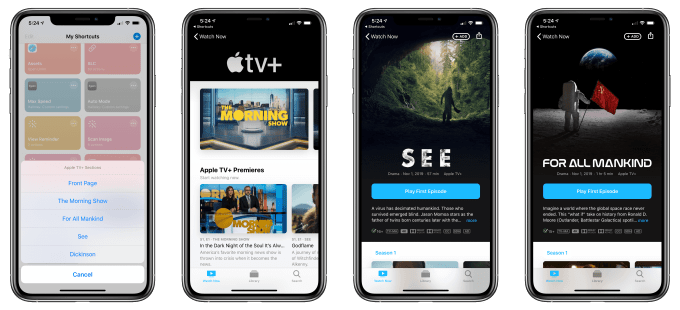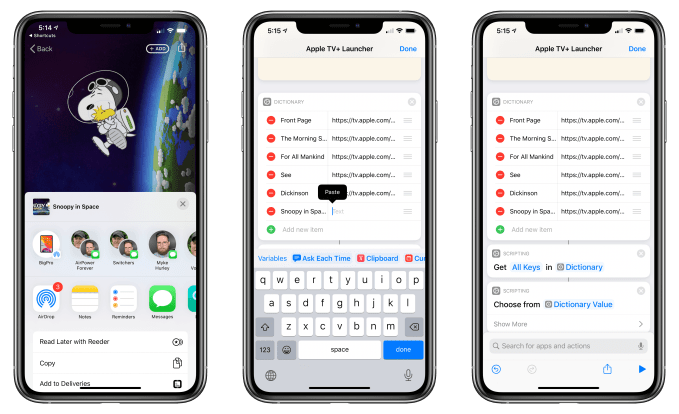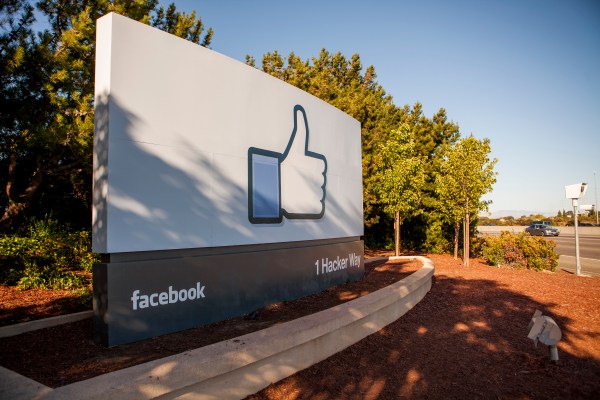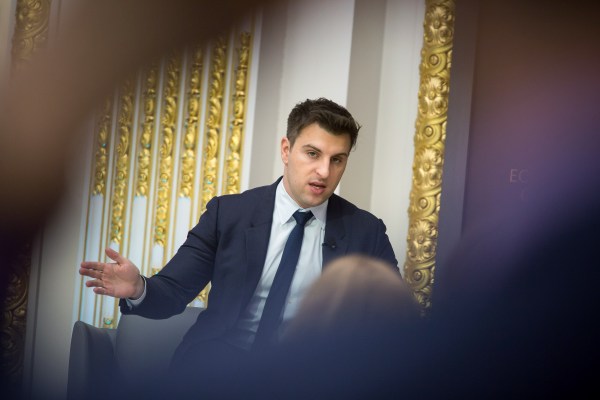Technology

Rumors have been flying today about Xerox possibly buying HP Inc., the printer and computer company. The company issued a public statement this afternoon confirming that there are talks ongoing, and that it will do whatever is in the best interest of shareholders.
The Wall Street Journal got things rolling earlier today when it published a report that Xerox was interested in the printer company, reporting the offer could be for more than $27 billion. Thata lot of money and the company has to at least consider it (assuming itaccurate).
HP acknowledged there are ongoing discussions between the two companies and that it received an offer letter from Xerox yesterday. Whatodd about this particular deal is that HP is the company with a much larger market cap of $29 billion, while Xerox is just a tad over $8 billion. The canary is eating the cat here.
Here is HPcomplete statement on the situation:
As reviewed at HPmost recent Securities Analyst Meeting, we have great confidence in our multi-year strategy and our ability to position the company for continued success in an evolving industry, particularly given the multiple levers available to drive value creation.
Against this backdrop, we have had conversations with Xerox Holdings Corporation (NYSE: XRX) from time to time about a potential business combination. We have considered, among other things, what would be required to merit a transaction. Most recently, we received a proposal transmitted yesterday.
We have a record of taking action if there is a better path forward and will continue to act with deliberation, discipline and an eye towards what is in the best interest of all our shareholders.
Hewlett-Packard, one of the early stalwarts of Silicon Valley, split into two companies in 2014. HP Inc. got printers and PCs. HP Enterprise got servers and enterprise software.
HP stock was up 6.36% today as of publication. Xerox was up 3.55%.
- Details
- Category: Technology
Read more: HP confirms it has received a proposal from Xerox about being acquired
Write comment (96 Comments)The Apple TV app is so bad, someone had to create a shortcut just to make it easier to navigate to the new Apple TV+ content. Apple may have invested billions in its Apple TV+ streaming service and hosted star-studded events to tout its new shows, but what it apparently didn&t do is give much thought to designing its TV app to help direct users to its exclusive content.
Instead, the Apple TV+ shows were mixed in with everything else at launch — forcing users to scroll past What to Watch recommendations and more from the larger iTunes catalog just to find the Apple TV+ section.
And even if and when you found that Apple TV+ section, each individual show page is poorly organized, too. Instead of following the standard format where a seasonepisodes are listed in vertical order on an iPhone, AppleTV app opts for a horizontal scroll instead. Itfrustrating. Itconfusing. No one likes it.
Apple TV+ may only include a handful of shows at launch, but it still deserves its own, dedicated tab — like Applevery own Netflix within the larger construct of the TV app. Part of the problem, as detailed by 9to5Mac here, is that AppleTV app has been designed to be a jack-of-all-trades. It connects you to your iTunes library of rentals and purchases, to your add-on premium subscriptions, to your TV Everywhere-authenticated apps, and to some — but not all — of your favorite streaming services.
But the end result is an app thatsort of a mess and one that failed to carve out a dedicated space for Apple TV+.
This problem also annoyed MacStories Editor-in-Chief Federico Viticci, who wanted an easier way to navigate directly to the Apple TV+ catalog content.
His solution? An iOS shortcut.
Viticci figured out a way to create URLs that will open any Apple TV+ section you want to get to in the TV app. Similar to how Apple Music web links can be edited to direct to content right in the Apple Music app, Apple TV+ web links can also be tweaked to launch the TV app — without redirecting you through Safari first. This is done by replacing the &https& part of the content URL with &com.apple.tv,& he explains.
With this discovery, Viticci was then able to create a shortcut that lets you go directly to any Apple TV+ page — including the &front page& for Apple TV+ or the individual show pages for shows like The Morning Show, For All Mankind, See, and Dickinson.

Apple TV+catalog is a bit larger than that, of course, and will continue to grow. But you can continue to edit the shortcut to meet your needs.
To add something new to the default list of shows, you&ll first have to locate the show in the TV+ app — good luck! You&ll then tap the &Share& button then choose &Copy& to copy the link to your clipboard. In the shortcut, you&ll add a new &Text& item to the action thatat the beginning of the shortcut, and name it what you like. Finally, you&ll paste in the link you had copied into the &Value& field.
Ta-da! You updated the shortcut!

Or if you just want to use the iOS shortcut as is, so you can get right to Dickinson, you can add it by clicking here.
Viticci tells TechCrunch he expects to keep adding sections as well as links for more shows, as these become available. The shortcut, which is called simply &Apple TV+ Launcher,& will be updated in the MacStories Archive so people can re-download the latest version as needed, he says.
Of course, when people are building a shortcut to work around an apppoor navigation, therea bigger problem that needs to be addressed.
Now, itpossible that Apple intentionally mixed in Apple TV+ content in such a way to not make it look like it was using its platform power to give its own service a boost, in light of the recent antitrust and anticompetitive investigations into its business practices. But Apple usually doesn&t go so far as to offer a poor user experience — thatjust not in its ethos.
Besides, Apple certainly wasn&t shy about marketing the streaming service in other ways — as with the push notifications or the big Apple TV+ banner at the top of the Apple TV homescreen, for example.
Instead, this just looks like a case of needing to tweak the appdesign.
Until then,we can just use the shortcut to help.
(Image credits: MacStories)
- Details
- Category: Technology
Read more: Can’t find the new Apple TV+ shows, like ‘Dickinson’ This shortcut can help.
Write comment (93 Comments)
Welcome to this edition of The Operators, a recurring Extra Crunch column, podcastand YouTube show that brings you insights and information from inside of tech companies. Our guests are execs with operational experience at both fast-rising startups like Brex, Calm, DocSend and Zeus Living, along with more established companies like AirBnB, Facebook, Google and Uber. Here, they share strategies and tactics for building your first company and charting your career in tech.
In this episode, we&re talking about hiring and recruiting:
- Why people take the risk of working at early-stage startups
- When and how to work with recruiters
- How to make your first hires
A companyfirst hires are often the hardest; money is usually too tight to pay competitive salaries, thereno recognizable brand or reputation yet and most people would prefer to work at a company their friends and family have heard of before. Therealso fair presumption of risk and unviability — who wants to take a job that might not be around in a year?
Startup founders overcome these odds on a regular basis. To figure out how, we spoke with two experts:
Farah Sharghi-Dolatabadi began her career as a software developer and financial advisor before moving into recruiting. Shebeen a recruiter at startups in addition to companies like Google and Lyft. Shecurrently a senior technical recruiter at Uber and an active career coach at HireClub.
Kelly Kinnard is Vice President of Talent at Battery Ventures, where sheworked with startups like Wag, Coupa, Fastly, and Gainsight. She also has experience at top recruiting firms and in executive search at Oracle.
Below is a synthesized summary of our conversation; check out The Operators for the full episode.
Why people take the risk of working at early-stage startups
Most early-stage startups fail. That shouldn&t be news to anyone. Still, however unlikely big outcomes are, the possibility of being a part of the next Facebook or Uber is tempting, and taking a job at a brand new company may even rational on an expected value basis.
Sometimes itnot just the chance at a big financial outcome. We&ve heard early-stage employees say they made their choice based for more intangible reasons, like having more autonomy in their work, seeking a less structured environment, working with a certain type or set of colleagues, wanting a sense of adventure or purpose and the opportunity for more rapid career progression.
It may not be possible for an early-stage startup to offer market-rate compensation, but they can personalize the opportunity for early employees.
&Be creative and do things like cater to that individual and think about it on a case by case basis,& said Kinnard. &If that candidate really wants to work from home two days a week because they have a dog and you can&t allow dogs in the office, and they want to be able to walk their dog or go pick up their child from school after school, then try to customize things according to each individual.& But don&t forget that compensation still matters, as do market rates. According to Kinnard, &cash is still king, and I think sometimes I see founders and I see CEOs be unrealistic about what they expect to be able to pay people. A part of what I do is provide them with competitive comp data so they can look at the data and [see] herewhat 3000 companies that we&ve surveyed have suggested the compensation ranges.&
Creative problem-solving pays dividends in recruiting, just like in does with most other problems startups need to solve. Experienced recruiters can help companies figure out how to get creative, but how do you know if working a recruiter is right for you?
When and how to work with recruiters
- Details
- Category: Technology
Read more: The first hires are the hardest
Write comment (96 Comments)
Californiaattorney general Xavier Becerra has accused Facebook of &continuing to drag its feet& by failing to provide documents to the stateinvestigation into Facebook and Cambridge Analytica.
The attorney general said in a court filing Wednesday that Facebook had provided a &patently deficient& response to two sets of subpoenas for the previously undisclosed investigation started more than a year ago. &Facebook has provided no answers for nineteen interrogatories and produced no documents in response to six document requests,& the filing said.
Among the documents sought are communications by executives, including chief executive Mark Zuckerberg and chief operating officer Sheryl Sandberg, and documentation relating to the companyprivacy changes.
The filing said the social media giant was &failing to comply with lawfully issued subpoenas and interrogatories& for what the attorney general says involves &serious allegations of unlawful business practices by one of the richest companies in the world,& referring to Facebook.
Becerra is now asking a court to compel Facebook to produce the documents.
The now-defunct Cambridge Analytica scraped tens of millions of Facebook profiles as part of an effort to help the Trump presidential campaign decide which swing voters to target with election-related advertising. Facebook banned the analytics and voter data firm following the unauthorized scraping. Facebook was later fined $5 billion by the Federal Trade Commission for violating a privacy decree in 2012, which demanded that the company engage in better privacy protections of its users& data.
A Facebook spokesperson did not respond to a request for comment.
- Details
- Category: Technology

Following the death of five people at a Halloween party hosted at a California Airbnb rental, and a scathing Vice report outlining Airbnbfailure to prevent nation-wide scams, the company says it will begin verifying all seven million of its listings.
Airbnb properties will soon be verified for accuracy of photos, addresses, listing details, cleanliness, safety and basic home amenities, according to a company-wide email sent by Airbnb co-founder and chief executive officer Brian Chesky on Wednesday. All rentals that meet the companynew standards will be &clearly labeled& by December 15, 2020, he notes. Beginning next month, Airbnb will rebook or refund guests who check into rentals that do not meet the new accuracy standards.
The long-awaited updates to Airbnbsecurity measures come months before the company plans to complete aninitial public offering or direct listing and just days after Chesky announced the business would ban &party houses,& and work harder to combat unauthorized parties and abusive host and guest conduct.
&We believe that trust on the internet begins with verifying the accuracy of the information on internet platforms, and we believe that this is an important step for our industry,& Chesky said in the staff email.
Airbnb also will launch a 24/7 Neighbor Hotline, which will allow guests to reach a real Airbnb employee from any location at any time. The company will fully roll-out the service next year. Finally, Airbnb will expand its screening of potentially high-risk reservations globally next year.
The new efforts are led by Margaret Richardson, Airbnbvice president of trust, who Chesky tasked with rapidly formulating a response to the Halloween party massacre. The company has also tapped Charles Ramsey, former chief of the Philadelphia and Washington, D.C. police departments, and Ronald Davis, the former chief of the East Palo Alto police department, to advise the projects.
&More than eleven years after Joe, Nate, and I started Airbnb, I have been asked what has surprised me most about the world,& Chesky writes. &My answer is two things: that people are, in fact, fundamentally good, and that we are 99% the same. We still believe this, and with these changes, we hope to continue to demonstrate this to the world.&
- Details
- Category: Technology
Read more: Airbnb to verify all of its listings
Write comment (96 Comments)As history tells us, the break-up of &Big Oil& and &Big Telco& in the past led to more competition and innovation. What to do in the era of &Big Tech?& Living in 2019, we know more than ever before about how Big Tech, particularly in the shape of Facebook, Twitter and Google — as the prime arbiters of information and social media online — have shaped and affected politics today. At the same time, we&re about to face several huge sea-changes in the global system, not least of which will be the next U.S. election, Brexit, the rise of China and challenges of the climate crisis.
Speaking at Web Summit in Lisbon this week, former U.K. Prime Minister Tony Blair brought out a new report from the Institute which bears his name to address the turmoil of Western politics from the prism of the backlash against globalisation after the 2007-2008 financial crisis, the rise of populist movements and the effects technology is having on society, politicians and policymakers.
A policy framework designed for the offline world may have served many people well for many decades, but in an age of exponential technology, is it fit for purpose?
Platform companies like Facebook, aggregators like Google, Amazon and Uber have, says the Institute, stripped traditional gatekeepers of their power, delivered real progress for consumers and businesses and increased many freedoms. But they have also brought significant economic upheaval and heightened cultural pressures, along with huge unknowns about the future. The tech wolf has also now concentrated power in the hands of a relatively small number of companies that &all too often wield it clumsily and without sufficient legitimacy.&
This comes at a time when the Westlead on technology is &facing a clear and present challenge from determined Russian aggression and a concerted push from China to take a global lead in AI.&
BlairInstitute makes it plain in its new report (&A New Deal for Big Tech: Next-Generation Regulation Fit for the Internet Age&) that the current set of regulations designed for legacy industries is &a poor fit for the pace and scale of the Internet& and a new approach, based on stronger accountability coupled with more freedom to innovate, might be the best way to align private incentives with the public interest.
Blair is calling for a &new generation of regulator& that can take an international outlook, have technical expertise comparable with the big tech companies and be fluent in the same fundamentals of &Big Tech.&
But how? How is all this going to operate? What are Blairviews on Russia, disinformation on Facebook and Twitter, and whether tech will have an effect on the outcome of Brexit?
TechCrunch sat down with Mr Blair for the following, exclusive, interview.

Mike Butcher (MB): You&ve released this new report into regulating Big Tech. Do you want to outline its main thrust?
Tony Blair (TB): Essentially what we&re saying is: thereno way &big tech& is going to avoid regulation, and regulation that will treat them almost like public utilities because of their power, their reach and their impact. But the question is about getting the right form of regulation. So what we&re trying to do is to make sure that itthe kind of regulation of big tech that recognizes that [big tech has] actually brought enormous benefits to people, but at the same time protects people, whether iton issues around privacy, competition [and] making sure that consumers get adequate access — all of those types of things — and translate this into a set of proper principles. What I say to the big tech companies is that even though you may not want to have a lot to do with politics, as you can see — and I&ve been saying this for several years to them — itgoing to come your way. Because you&re just too powerful not to be under some system of objective regulation, and you can&t just regulate yourselves.
MB: On that note, many big tech companies have actually called for regulation, but do you think thata &sop& to governments in order to allow them to build even bigger monopolies? Because then everybody will have to be regulated, including smaller companies?
TB: I think the whole point about regulation is that it can be bad or it can be good. So you really want to make sure that the regulation you&re introducing is not an imposition on the companies for providing the service they do, but it is giving people proper protection and itrecognizing, as I say, the power that these companies have. People won&t find it acceptable that things continue without proper regulation. The fact that Mark Zuckerberg comes out in favor of regulation… I mean, I think thatgood. But the question is what type of regulation. And there, obviously, he and Facebook should have an input. But they can&t decide that. That— in the end — got to be decided by policymakers. And one thing my institute — which Chris [Chris Yiu, executive director, Technology and Public Policy] heads up, which is based in London but has strong links in Silicon Valley and elsewhere in the world — is to say there needs to be a dialogue between what I call the &change-makers& and the policy-makers that leads to good policy.
MB: But national governments making policy on their own surely isn&t going to address the issue, given Big Tech is global? What institutions can address this? Some sort of supranational body?
TB: Well, I think, ultimately, on certain issues you&ll need a global agreement. For example cybersecurity, I think we&ll, for sure, need that.
MB: Thereno &United Nations Declaration& for arms control on cybersecurity for instance.
TB: The one thing I&m noticing about cyber, even in the last year… the number of people I meet whose companies have been subject to actual attacks… In the end, if every country is going to want to protect its business and every country will recognize ultimately that if the big players don&t come together and agree some rules then… I mean, itjust anarchy.
In regards to regulation, I would like to see Europe and America create a new transatlantic partnership around regulation. This is one of the reasons I&m so opposed to Brexit… You are taking Britain out of that conversation with Europe at the very time that it needs to be in it.
MB: The pace of change at this point is now exponential. The rise of AI, quantum computing etc. Politicians have known about the rapid, changing nature of technology for a number of years. What do you think has been stopping them from grappling with the subject?
TB: Itpartly generational. Itpartly because politicians don&t often understand the technology. It is actually technical. It requires hard work. Some of it is like rocket science. Itnot easy. So thatpart of the problem. And the other problem is that I think the change-makers — the tech developers — their basic attitude, often, to government, is just to just &keep away from it.& And I completely get it. But itnot sensible. They&ve got to engage with government today, and thatwhy we&re trying, through the Institute, to establish that dialogue. And you know, if that doesn&t happen, you&ll find, as we did during the 19th-century industrial revolution, how long it took politics to catch up with the fact that the world was being revolutionized. It took decades to catch up. For a long time, society was subject to one change, and politics was still debating things that were from a different era. I mean, if you look at British politics today, with this debate where, on one side is Brexit, one on the other side is — basically — who spends more money in the next Parliament… we could have had this debate at any point in the last 30 years. Itgot no relevance, really, to how the worldchanging.
MB: Are you concerned about how social media has enabled populism?
TB: Yes, I think social media is a revolutionary phenomenon and itrevolutionized everything, including politics. And we&ve got to work out ways of dealing with that because it is rupturing politics in a serious way.
The problem is that political leaders are always trying to &step out in front,& but not so much that they lose touch with their people. So thata calibration, all the time, between leadership and listening. If the &listening& part of it becomes &instrumentalized& through social media, then the risk is that politicians just lose their compass. They don&t know where they&re going, they are just buffeted by waves of opinion. And then, if you&re not careful, what happens is that the people who rise to the top in those circumstances are the people who ride that.
MB: Should Twitter shut down Trumpaccount?
TB: Well howthat going to help? I mean, honestly, I don&t think thatrelevant.
MB: Facebook has said itgoing to be changing its policy on political advertising, and won&t be regulating disinformation on political ads. Whatyour opinion on that?
TB: My opinion is that itvery hard, if you&re Facebook, to stop people having political ads. But, to me, the the whole concept that Facebook is &self patrolling& as to what should come on the internet or not, is an indication of why you need proper regulation. The decision as to whether somethingfit for consumption or not shouldn&t be left to a few thousand people employed by Facebook, you know, sitting and looking at crazy stuff on Facebook all day. I mean, this is to me just a further indication of why you&ve got to put everything within a proper system of regulation. Otherwise, itnot actually fair to ask the company to do that. How can they decide what is a political ad or not? But someone should.
MB: What do you think of Twitterdecision not to take any political advertising?
TB: In some ways I understand that, and in some ways I welcome that, but I think Facebookin a slightly different position just in terms of scale, right?
MB: China is deploying technology in its society at a huge, exponential rate, in terms of things like facial recognition and the surveillance of its population. Its ability to hoover-up all this data is effectively giving it enormous power to create, possibly, the next, powerful AI, because the more data you have the more you can improve an AI. Do you think that the Western approach, with its tradition of more democratic institutions that have moved more slowly than a command-and-control system, means that we are effectively going to be left behind by political systems that err towards the more dictatorial?
TB: Well I think therea huge debate thatgoing to go on about China, more generally, in the West, which is what I call the debate about whether you &decouple.& Do you accept that theretwo systems that are going to remain very distinct, also in technology? This is part of what underpins the Huawei debate regarding 5G. Or do you try to get to what Henry Kissinger calls a form of &cooperative competition?& Now, I prefer the latter, not the former course, because I think decoupling is very difficult. But, what that means, in my view, is that the West has got to get its act together, because otherwise China will achieve superiority in AI and, in some regards, it already is. If you think of all the devices that we use in the West that are Chinese… You can see this with [the rise of] TikTok, for instance.
MB: The U.K. general election is now on and people are using technology to &get out the vote.& There is a lot of talk about &tactical voting& and lots of tactical voting recommendation websites appearing. Do you favour any particular approach?
TB: So, herewhere technology obviously has a beneficial purpose. If people decide that they want to vote tactically — and I completely understand that because of Brexit being mixed up [in the election], and frankly, dissatisfaction with both main parties — then web sites that tell you how to do that intelligently and provide the information, then… great. You&ve got ones from Best For Britain, PeopleVote, Gina Miller has one and there are others. Yeah, fine, people should look at them I think.
MB: ParliamentIntelligence and Security Committee has been prevented by Number 10 from releasing its intelligence report and it allegedly contains information about how Russia affected British politics and society using technological means in the last few years. What are your concerns about Russiaincursion into U.K. politics using technology?
TB: I think this is not just a Russian question, although therebeen a lot of focus on what Russia has done. You&ve got to put all of this out on the table and I think, again, Western governments should be cooperating together to say… if there is outside interference — and I don&t really know the scale of it because you&ve got to go into the detail — how people are influencing media, how people are using techniques to try and influence voters, from the outside, trying to destabilize your politics… all of it should be out in the open. Because thatthe best way of stopping it, and then you can take action against people who are doing it. But this is another reason why I think this is a slightly different form of cybersecurity, if you like, but itsomewhat akin to it. Because, in the end, if you&ve got people, for example, changing their votes — particularly in tight-run elections — changing their votes on the basis of misinformation thatcoming from a foreign government thatdeliberately trying to destabilize your politics, then at least you should know about it. Now, this is going to be a big big issue for the future.
- Details
- Category: Technology
Read more: Exclusive: Tony Blair on regulating Big Tech, Facebook, Russia, China and Brexit
Write comment (98 Comments)Page 424 of 5614

 5
5
 /
/ ) from the get-go, as in a year or two, 80 shows down the road, personalized recommendations will be essential
) from the get-go, as in a year or two, 80 shows down the road, personalized recommendations will be essential